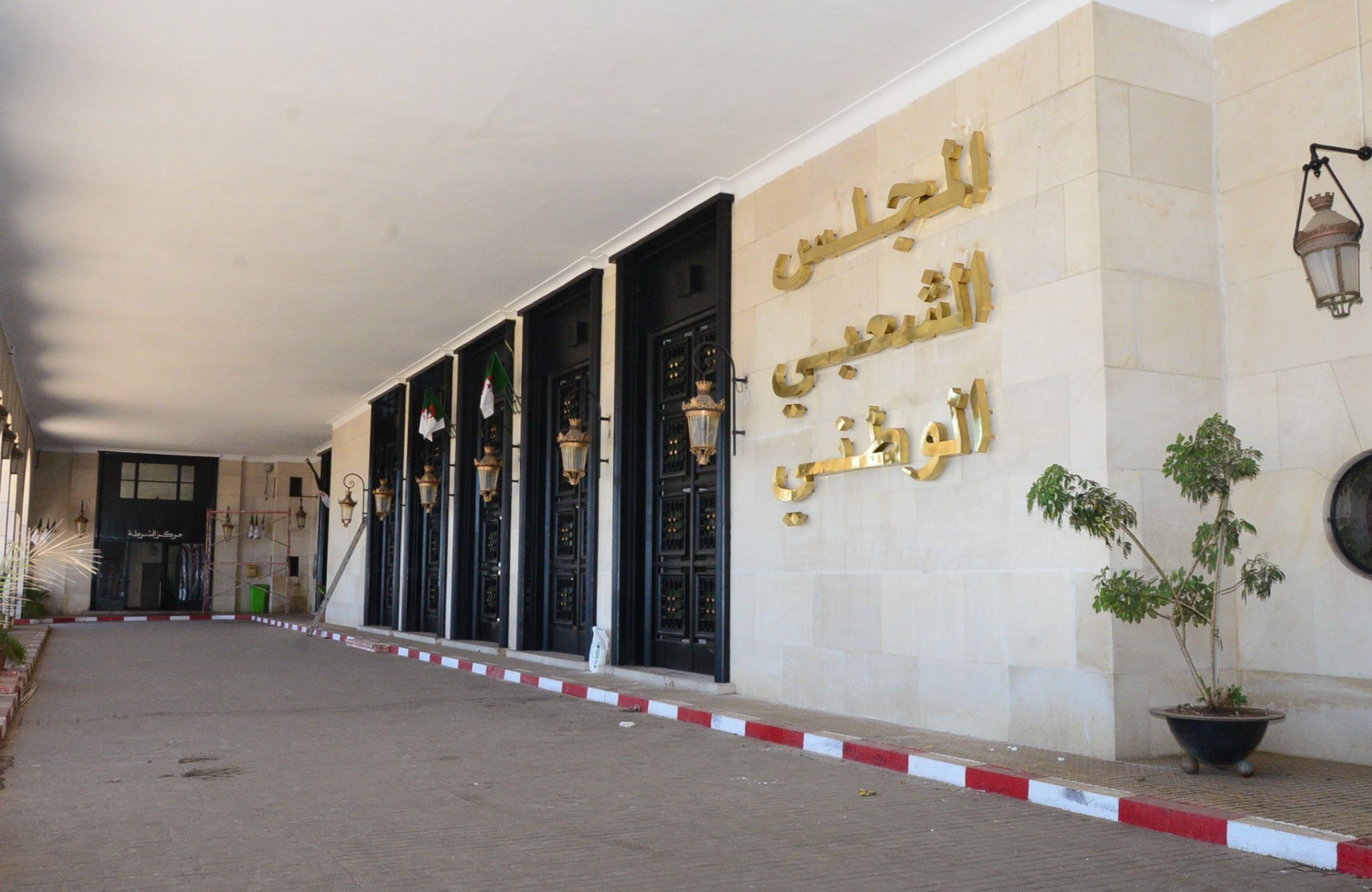This project, which falls within the framework of embodying the directives of the President of the Republic, Mr. Abdelmadjid Tebboune, aims to upgrade the quality of media service and enhance professionalism in media practices by subjecting the creation of periodicals or electronic newspapers to the possession of a university degree by the publishing director, in addition to competence and actual experience, as well as ensuring media pluralism and preventing The financial, political or ideological influence of the same owner and ensuring the citizen’s access to information throughout the entire national territory.
Through its new provisions, it will contribute to enhancing the freedom of the written and electronic press and protecting media professionals. It also seeks to respond to the aspirations of the sector’s professionals by taking into account their concerns and suggestions emanating from the consultations conducted with them, especially with regard to simplifying administrative procedures when creating periodicals or electronic newspapers. .
In this context, the project proposes subjecting periodicals and electronic newspapers to the authorization system, and this is a dedication to the provisions of Article 54 of the Constitution of the year 2020, and also defines the tasks of the authority to control the written press and the electronic press established under the organic law related to media in the field of controlling the activity of the written and electronic press.
In the event of a violation of the provisions of this text, the authority to control the written and electronic press can notify the competent judicial authorities with a view to the temporary or final suspension of the activity of periodicals and electronic newspapers, while giving them the possibility of automatically interfering with the excuses of the violators.
The project also included devoting the principle of pluralism of opinions and thought and preventing the centralization of periodicals and electronic newspapers, by defining the number of publications and electronic newspapers allowed to be owned or controlled by every natural person of Algerian nationality or legal subject to Algerian law with one publication or one electronic newspaper for public information.
In response to the same principle, it was emphasized that it is not possible to contribute to the Social Capital for more than a periodical publication or an electronic newspaper for public information, with the issuance of publications subject to a permit signed by the publishing director attached to a file deposited with the Ministry in charge of communication in return for a deposit receipt that is tantamount to approval for issuance, which is not subject to To waive in any way, and the Ministry sends a copy of it and the documents attached to it to the authority to control the written and electronic press.
The permit stipulated in the draft text includes the title of the publication, its subject, periodicity and place of issuance, in addition to the legal nature of the publishing institution and the components and source of the capital of the publishing institution. With the Social Security Fund, he should not have been convicted of corruption cases, or a follower in them, or having committed dishonorable acts.
With regard to foreign periodicals, they require a prior authorization from the qualified departments of the Ministry, and the issuance or import of periodicals destined for free distribution is subject to a prior authorization from the Ministry in charge of foreign affairs.
As for the activity of the electronic press, Article 31 of the draft law stipulates the conditions that must be met by the publishing director, including possession of Algerian nationality, a university degree or a certificate recognized for its equivalence, and experience of no less than 5 years proven, and he must not be convicted of corruption or follow-up cases. or committing dishonorable acts.
With regard to the authority to control the written press and the electronic press, it is responsible for ensuring the transparency of the economic rules for the conduct of periodicals and electronic newspapers, ensuring the quality of media messages as well as promoting national culture and highlighting it in all its forms, respecting the legislative and regulatory standards applied in the field of publicity, and setting up all mechanisms to verify and monitor the information provided. Especially in the field of finance.
The authority consists of 9 members, including the president, who are appointed by the President of the Republic upon a proposal from the Prime Minister for a term of 5 years, renewable once, and they are chosen from among competencies, personalities, and researchers with actual experience in the technical, legal, economic, and journalistic fields. Their writings, research, and contributions to the development of journalism are recognized. Article 47 obliges them to refrain from taking any public position on issues that the authority deliberated on.
The draft law also dealt with penal provisions in the event of breach of content, as Articles 74, 75 and 76 stipulate that every person who issues a periodical or creates an electronic newspaper without carrying out the authorization procedures, and every publishing institution that has not authorized any amendment to the elements constituting the permit, shall be punished with a fine of between two hundred and five hundred. A thousand DZD.
In the same context, Article 77 stipulates that the printing establishment that prints periodicals and the host who hosts an electronic newspaper in the absence of authorization be penalized with a fine of one hundred to five hundred thousand dinars.
Article 80 of this draft obligates the periodicals and electronic newspapers that are in a state of activity to comply with the provisions of this law within a period of 6 months starting from the date of its issuance. Article 81 stipulates that the ministry in charge of communication assumes the functions and powers of the authority until its installation.
A legislative framework that strengthens guarantees of freedom of expression and conforms to the principles of the constitution
The preparation of the new organic law related to the media aims to establish a legislative framework that enhances the guarantees of freedom of expression and responds to the aspirations of citizens in the field of media, as well as to impart an innovative character consistent with the principles stipulated in the constitution.
In presenting the reasons, the text of the draft law stated that “the preparation of a new organic law is dictated by the need to embody the basic principles stipulated in the 2020 constitution in the field of media and to establish a legislative framework that enhances guarantees of freedom of expression and responds to the citizen’s aspirations in the field of media.”
The new law, which was mentioned in 55 articles, meets “the sector’s need to regulate the profession, taking into account the requirements of public service tasks and the public interest,” and translates “the desire of the public authorities to give this amendment an innovative character that conforms to the principles stipulated in the constitution and keeps pace with changes resulting from technological development.” It is in line with international standards.”
Through the new provisions it includes, it contributes to “strengthening the freedom of the written, audiovisual and electronic press, as well as the emergence of a press rooted in the national reality, aware of the stakes and committed to morals and professional ethics.”
Among the main axes identified in the framework of the draft law is “establishing the declarative system,” which is based on “the principle enshrined in Article 54 of the Constitution, which requires simplified application in the field of establishing periodicals instead of the accreditation currently in force.”
Regarding the establishment of the authority to control the written and electronic press, it is considered, according to the text of the draft law, “a public authority that enjoys moral personality and financial and administrative independence, and is tasked with controlling the activities of the written and electronic press.”
In this context, the draft legal text stated that “in order to exclude owners of corrupt money from investing in the media sector, the media has been obligated to declare the possession of pure national capital and to prove the source of the invested funds and the funds necessary for their management before the Ministry in charge of communication or with the independent national authority for audio control.” visual according to the type of activity.
In the field of audiovisual, the Basic Law of the Audiovisual Control Authority was amended by granting it “a special character with entrusting it, in addition to the tasks entrusted to it, with the responsibility of controlling and monitoring audiovisual communication services via the Internet, in addition to traditional audiovisual communication services.”
With regard to regulating the profession of the journalist, it was stressed the necessity of “developing a special basic law that defines the conditions for practicing the profession and the rights and duties associated with it, with reference to the organization to define the various categories of journalists, press assistants and professions related to journalistic activity.”
On the other hand, this draft text guarantees “the journalist’s right to freedom of expression within the framework of respecting the constitution, the provisions of this organic law, and the laws in force,” in addition to protecting him from “every form of violence or insult during and on the occasion of performing his duties, with the aim of enabling him to exercise them away.” any pressure he might be exposed to.
The draft law states that the journalist has “the right to access the source of information except when the news relates to prejudice to the secret of national defense as defined in the applicable legislation, to state security and national sovereignty, to the confidentiality of preliminary and judicial investigations, to the legitimate interests of institutions and to the private lives and rights of others.”
Under the provisions of the draft legal text, a higher council for the ethics and ethics of the journalist profession is established, consisting of 12 members, 6 of whom are appointed by the President of the Republic from among competencies, personalities, and researchers with actual experience in the field of journalism, and the other 6 are elected from among journalists and publishers involved in accredited national professional organizations.
The journalist shall, during the exercise of his journalistic activity, adhere strictly to the rules of ethics and ethics of the profession stipulated in the Charter of Professional Ethics and Ethics, which is prepared and approved by the Supreme Council of Ethics and Ethics of the Journalist Profession.
In particular, he must refrain from “publishing or broadcasting false or biased news, exposing people to danger, glorifying colonialism or insulting national memory and the symbols of the liberation revolution, praising, directly or indirectly, racism, terrorism, intolerance and violence,” in addition to “publishing or It broadcasts, directly or indirectly, hate speech and discrimination.
Without prejudice to the legislative provisions in force, the draft law stipulates that “every breach of the rules of ethics and ethics of the press profession exposes its perpetrators to disciplinary penalties determined and ordered by the Supreme Council of Ethics and Ethics of the Journalist Profession.”
#written #electronic #press #law.. #legislative #framework #strengthens #guarantees #freedom #expression #conforms #principles #Algerian #constitution #dialogue
#oussama_boulegheb #elhiwardz #alakhibariat.xyz #elhiwar #elhiwar-en



